25 Best Sites Like eBay to Sell Your Stuff in 2026
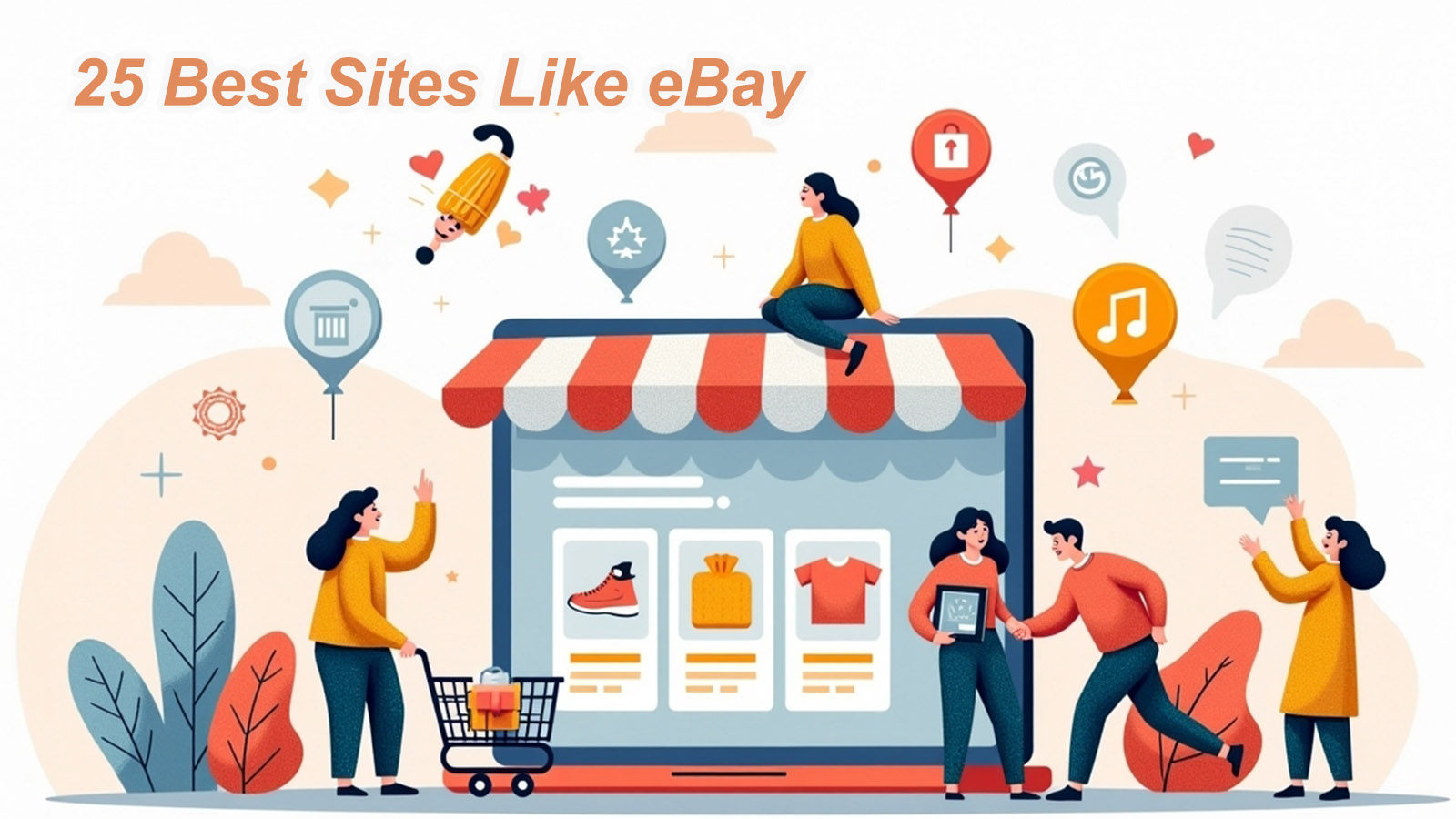
eBay, one of the largest online marketplaces in the U.S., is a household name among online sellers. In Q3 of 2024, it had around 133 million active buyers worldwide, generating approximately $2.6 billion en revenus.
But let’s be honest—eBay isn’t the only game in town.
Whether you’re fed up with fees, tired of policy headaches, or just curious about new opportunities for selling or dropshipping—there are plenty of other marketplaces out there. Some are niche-specific. Others give you more control. Many even offer better fee structures or fewer seller restrictions.
In this guide, you’ll find 25 sites like eBay, including their pros, cons, seller fees, and suitability for dropshipping.
Plongeons-nous !
Why Consider Finding Sites like eBay?
Tandis que eBay has remained a popular marketplace for years, there are some reasons why sellers want to explore other marketplaces.
- High fees and strict rules: eBay charges several types of fees—listing, selling, and payment processing. These fees can be tough on new sellers, especially if your products have low profit margins. Plus, eBay’s strict seller policies mean a single return dispute could lead to warnings or even a suspended account.
- Too much competition: Some niches on eBay are saturated. It’s hard for small shops and new sellers to stand out and compete with big resellers.
- More control elsewhere: On other platforms—or your own website—you set your own rules. You control pricing, branding, and even how your listings appear. That freedom’s hard to put a price on.
- Multi-channel is the smart move now: E-commerce has grown a lot, and now there are many places to sell online—not just eBay. Multi-channel selling is the trend. New platforms like TikTok Shop are booming, and sellers who grab attention early often do better. Plus, buyers shop differently now. They don’t just stick to one site—they compare and browse across multiple platforms.
Lecture recommandée : Boost Your eBay Sales with Terapeak
The Top 25 Sites Like eBay for Selling and Dropshipping
So, eBay is not your only option—and maybe not even your best one. In this section, I’ll walk you through 25 strong sites like eBay. Chances are, there’s a platform out there that fits your goals better.
Amazone

Amazone is a global e-commerce giant known for its massive customer base and fast Prime shipping. As a seller, you can choose between FBM (Fulfilled by Merchant) and FBA (Fulfilled by Amazon). FBA offers big advantages like faster delivery and access to Prime customers.
Amazon favors sellers with competitive prices, fast shipping, and great customer service. Rankings are driven by sales and reviews, so new sellers need a solid plan to gain traction. For dropshipping, Amazon has strict rules—you must use approved suppliers and ship on time.
| Avantages | Les inconvénients |
|---|---|
| Huge buyer base | Competitive and fee-heavy |
| High trust and credibility | Strict performance metrics |
| FBA simplifies fulfillment and returns | Risk of account suspension |
Amazon Selling Fees:
- Referral fee: 8%–15%, depending on category
- Individual plan: $0.99 per item sold
- Professional plan: $39.99/month
- Additional FBA and storage fees apply
Boutique TikTok

Boutique TikTok is one of the fastest-growing online marketplaces. It’s built directly into the TikTok app, so buyers can discover and buy without ever leaving the platform. That’s a major plus for sellers—you’re not just selling products, you’re building influence.
For dropshippers, TikTok Shop is a goldmine. Short-form videos can create demand quickly. Many sellers now use real-time fulfillment agents to ship products without holding inventory.
| Avantages | Les inconvénients |
|---|---|
| Built-in traffic from TikTok’s massive user base | You’ll need to create content regularly |
| Live selling and videos create high-converting funnels | Success depends on the algorithm—no engagement, no visibility |
| Great for viral product sales | Not ideal for older shoppers |
TikTok Shop Selling Fees
- Commission: 6% per order (for most products)
- Transaction fees: Vary based on payment method (e.g., credit card processor)
Place de marché Facebook

Facebook Marketplace lets users list products for local pickup or ship across the U.S. It taps into Facebook’s huge user base and personal network, making it ideal for used items, handmade goods, or selling locally.
It’s less structured than platforms like Amazon, but that’s part of its charm. Sellers can also post in local buy/sell groups to reach more people. Livraison directe Facebook is possible and becoming easier, especially if you work with reliable suppliers and handle customer service well.
| Avantages | Les inconvénients |
|---|---|
| Easy to test product ideas with low risk | Limited buyer protection |
| Huge built-in audience | No built-in logistics unless you offer shipping |
| Great for local selling | Hard to scale dropshipping long-term |
Facebook Marketplace Selling Fees
- 5% per shipment
- $0.40 for shipments under $8
Etsy

Etsy focuses on handmade, vintage, and custom products. It’s not for mass-market items or big-brand electronics. Instead, it’s perfect for crafts, digital downloads, and unique designs. Buyers on Etsy expect creativity and a personal touch.
It’s also beginner-friendly. You can test product ideas without spending much. Etsy dropshipping is allowed, but you must disclose your partners and make sure your designs are original.
| Avantages | Les inconvénients |
|---|---|
| Niche audience that values originality | Limited to creative product categories |
| Supports digital goods | High competition in some niches |
| Seller-friendly tools and community | Fees can add up with advertising |
Etsy Selling Fees
- Listing fee: $0.20 per item
- Transaction fee: 6.5%
- Processing fee: Varies by location (e.g. 3% + $0.25 in the U.S.)
- Etsy Plus subscription: $10/month
- Optional fees for Etsy Ads and Offsite Ads
Walmart Marketplace

Walmart has opened its doors to third-party sellers through Walmart Marketplace. With millions of loyal shoppers and fast shipping expectations, it’s one of the top eCommerce platforms like eBay. To sell here, you need a U.S. business tax ID and a solid fulfillment plan.
Walmart focuses on product quality, competitive prices, and fast shipping. It’s not beginner-friendly, but if you have experience, it’s a powerful sales channel. Dropshipping is allowed, but you must follow Walmart’s strict rules.
| Avantages | Les inconvénients |
|---|---|
| Access to Walmart’s huge customer base | Approval process is selective |
| Less competition than Amazon | Customer service expectations are high |
| Trusted brand with high buyer confidence | Strict performance monitoring |
Walmart Selling Fees:
Referral fee only, ranging from 5%–8%, depending on the product category
Poshmark
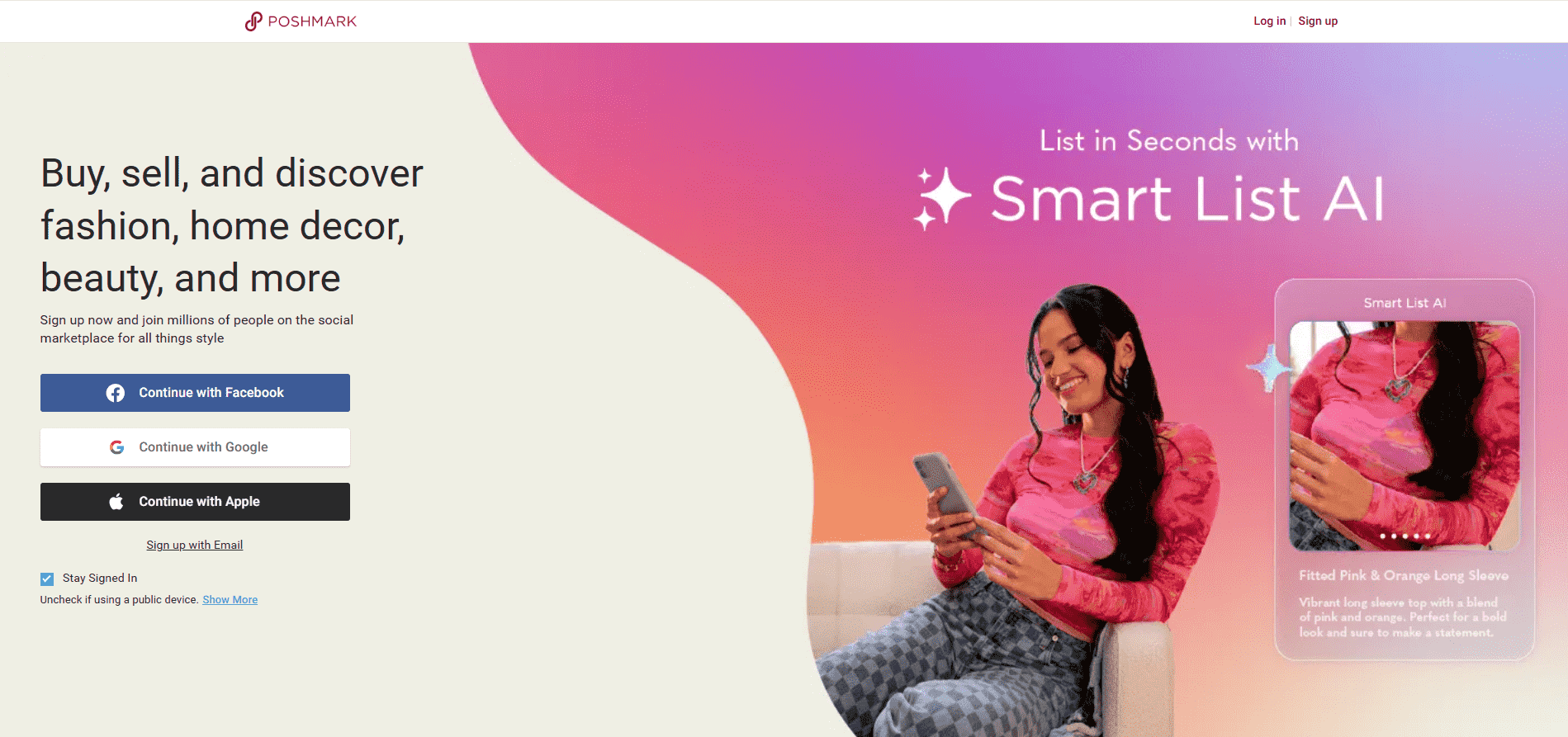
Poshmark focuses on fashion, accessories, beauty, and home decor. It’s mobile-first and feels like social media—buyers can “like” items, comment, and follow sellers. So, you don’t just list and wait. You need to stay active: share listings, interact with buyers, and keep your closet fresh.
It’s a great place for selling secondhand items or running a small fashion business. Dropshipping isn’t really supported, since Poshmark prefers sellers to ship from their own inventory. But for casual sellers, it’s easy and profitable.
| Avantages | Les inconvénients |
|---|---|
| Super easy to list items, especially clothing and accessories | Only supports limited product categories |
| Very active buyer base for fashion and lifestyle goods | Not great for bulk sellers |
| Strong community support | No custom storefront |
Poshmark Selling Fees:
$1–$3 based on order value, plus 5.99% of the total order
Shopify

Shopify isn’t a marketplace—it’s your own online store. You get a blank canvas and all the tools to build a custom brand. There’s no competition on your product pages and no surprise fees. Just you, your store, and your customers.
Setup is simple, even for beginners. Pick a theme, upload products, connect payment options, and you’re ready to go. If you want to dropship, Shopify works great with tools like Sup Dropshipping and DSers, making it easy to import products and fulfill orders automatically.
| Avantages | Les inconvénients |
|---|---|
| Total control over branding, layout, and pricing | You have to bring your own traffic |
| Perfect for long-term business building | Monthly fee, even if you make no sales |
| Supports multiple sales channels (Facebook, TikTok, Google, etc.) | Too many cost and app add-ons |
Shopify Selling Fees (Basic Plan):
- $39/month
- 2.9% + $0.30 per transaction (unless you use Shopify Payments)
Aliexpress
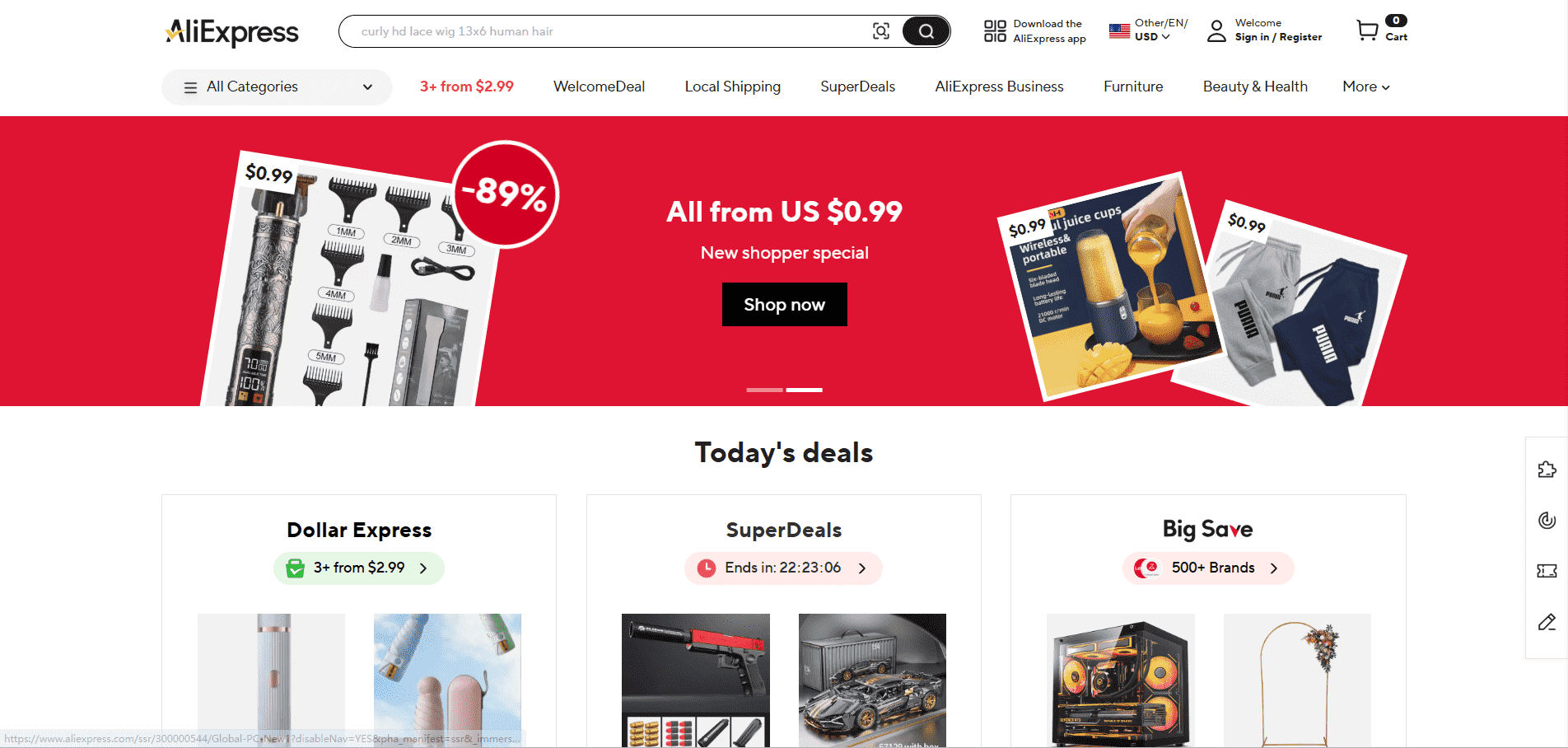
AliExpress, part of the Alibaba Group, is a China-based platform known for low prices and worldwide shipping. It’s a go-to for dropshippers looking to source cheap products for platforms like TikTok Shop or Shopify.
AliExpress works well for international B2C sales and supports sellers from some countries outside China. It also has its own logistics network (AliExpress Standard Shipping), which makes global delivery easier—though often slower.
| Avantages | Les inconvénients |
|---|---|
| Massive product selection | Long shipping times |
| Great for product research and test selling | Qualité des produits incohérente |
| Easy integration with dropshipping tools | Customer trust may be lower due to origin |
Aliexpress Selling Fees
- Sellers pay per sale
- Commission ranges from 5% to 8%, depending on category
Lazada
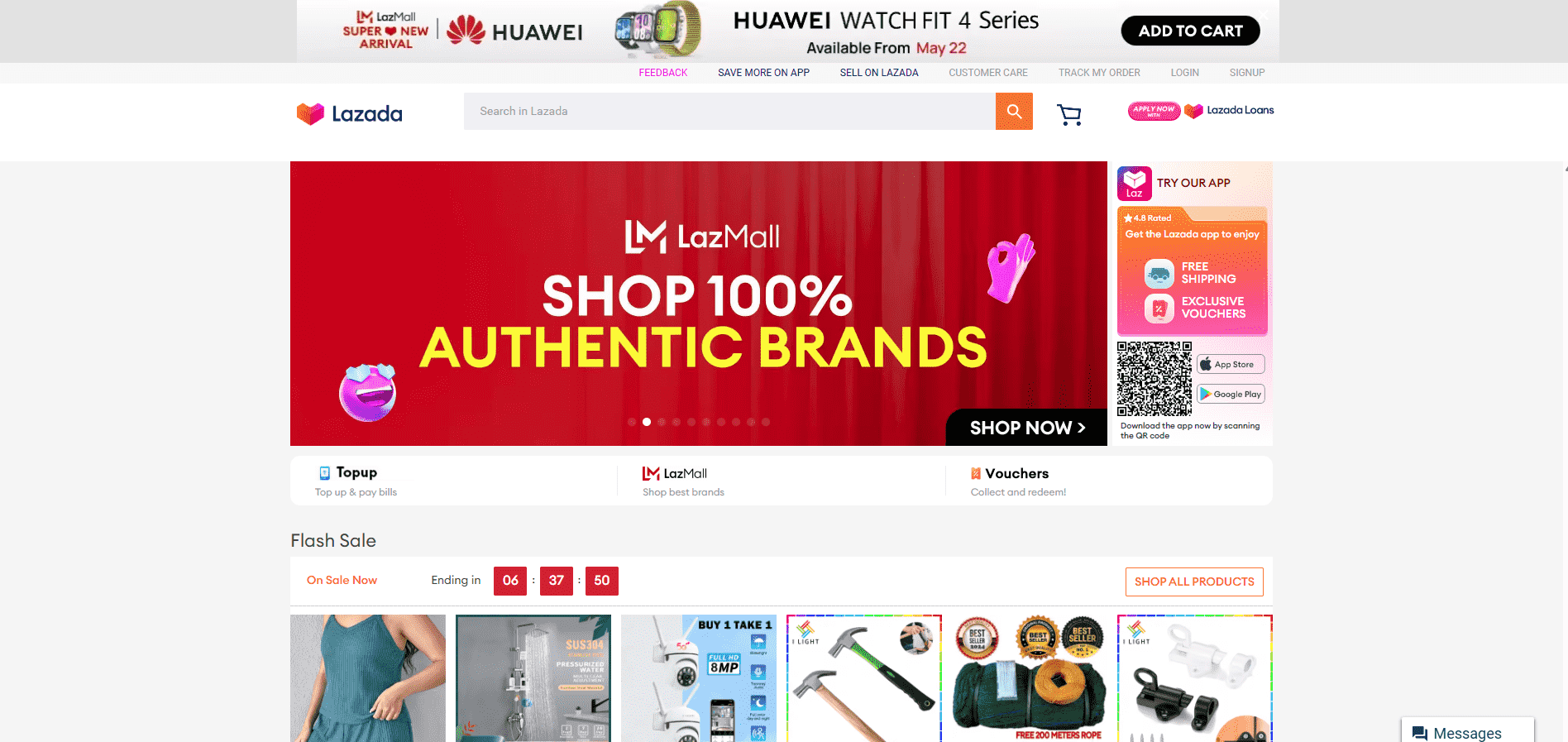
Lazada is one of Southeast Asia’s largest eCommerce platforms, owned by Alibaba Group. It serves countries like the Philippines, Thailand, Malaysia, Singapore, Vietnam, and Indonesia. If you’re targeting customers in this region, Lazada offers serious reach.
It works a lot like Amazon—shoppers browse by category, and Lazada can handle shipping through its Fulfillment by Lazada program. It’s also friendly to dropshippers, especially if you’re sourcing from Chinese suppliers or using fulfillment agents.
| Avantages | Les inconvénients |
|---|---|
| Large customer base in Southeast Asia | Requires business registration and local tax documents |
| Cash-on-delivery (COD) supported, which is popular in the region | Intense price competition |
| Built-in logistics and warehousing are available | English support can be limited depending on your market |
Lazada Selling fees
- Commission: 1%–4% (based on category)
- Payment fee: 2% of the transaction value
Ecwid
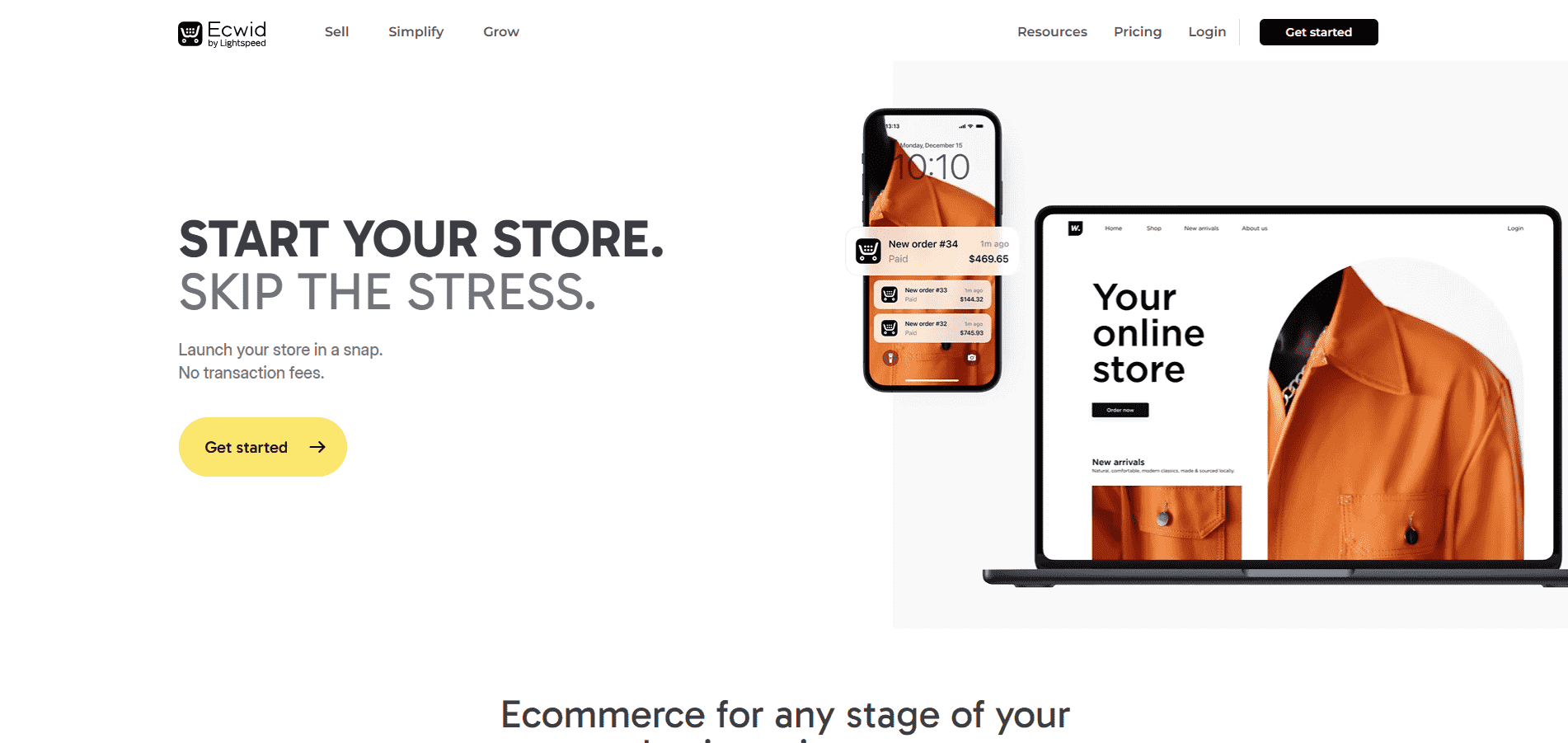
Ecwid is a shopping cart platform that turns any website, blog, or social media page into an online store. Unlike Shopify, Ecwid doesn’t require a brand-new site—you can embed it into your existing one.
It’s lightweight, flexible, and works smoothly with WordPress, Wix, Weebly, and Instagram. You can even sell directly from your Facebook page. That’s why it’s popular among small businesses and niche dropshippers—it’s quick, affordable, and fits into your current online presence.
| Avantages | Les inconvénients |
|---|---|
| Easy to integrate with existing websites or social pages | Limited design customization on free and basic plans |
| Free plan available for up to 5 products | You have to bring your own traffic |
| Supports dropshipping apps and integrations | Advanced features locked behind higher-tier plans |
Ecwid Selling Fees
- Subscription plans: $5/month, $25/month, $45/month, $105/month
- Aucun frais de transaction
LightInTheBox
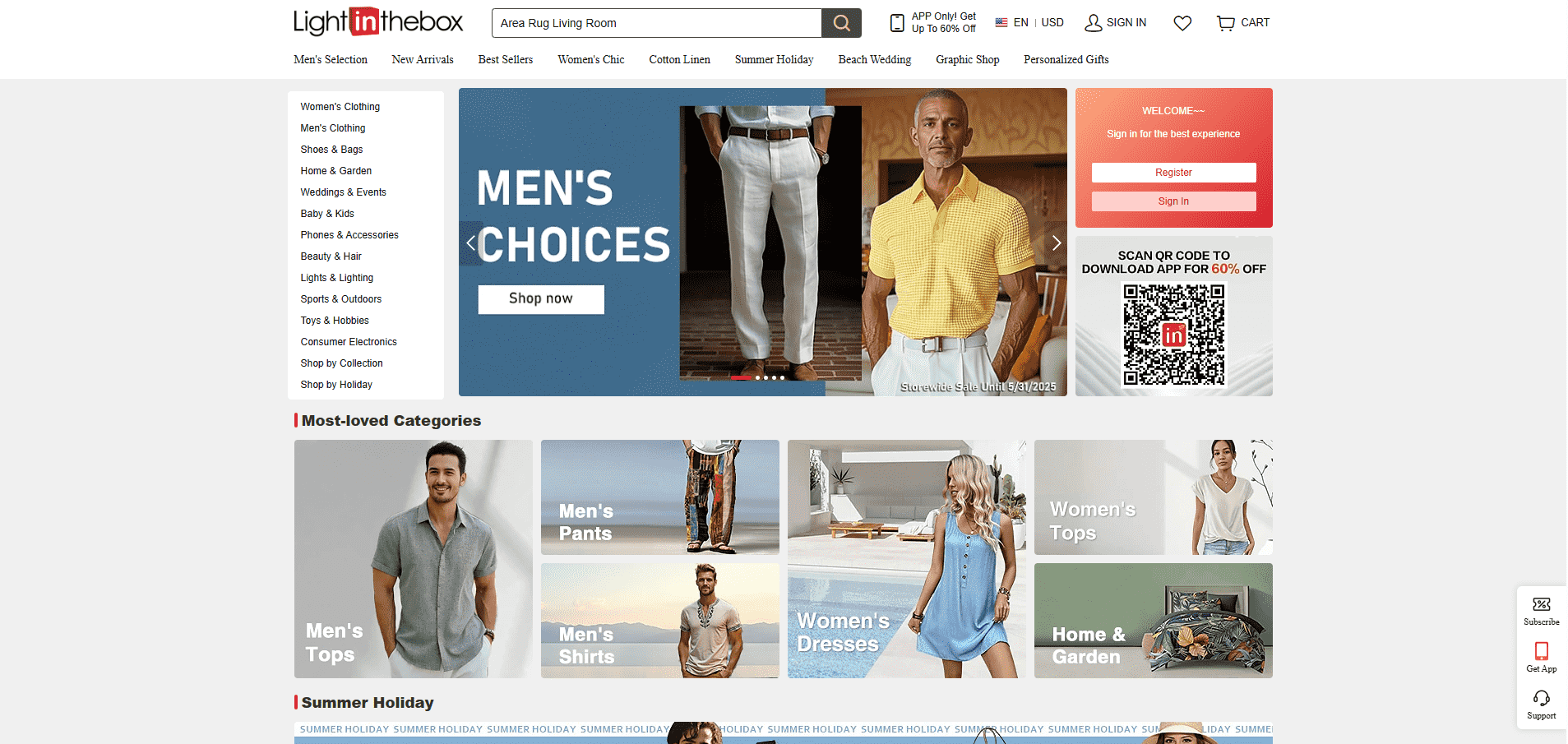
LightInTheBox is a global online retailer that sells everything from fashion to electronics. While most shoppers think of it as a direct-to-consumer site, it also works with select sellers behind the scenes—usually manufacturers or wholesalers.
Unlike eBay or Mercari, LightInTheBox is not for casual or new sellers. There’s no sign-up page. Instead, you partner with the company to supply products that fit their categories and quality standards. It’s more like becoming a vendor than opening a shop. Additionally, LightInTheBox offers global reach and dropshipping potential, making it a standout among international sites like eBay.
| Avantages | Les inconvénients |
|---|---|
| Global reach with buyers from over 200 countries | You can’t just register and start selling—it’s invitation-only |
| high margin potential | Sellers have limited control over branding |
| Built-in warehousing and shipping options | Return policies vary by item and can be strict |
Taobao
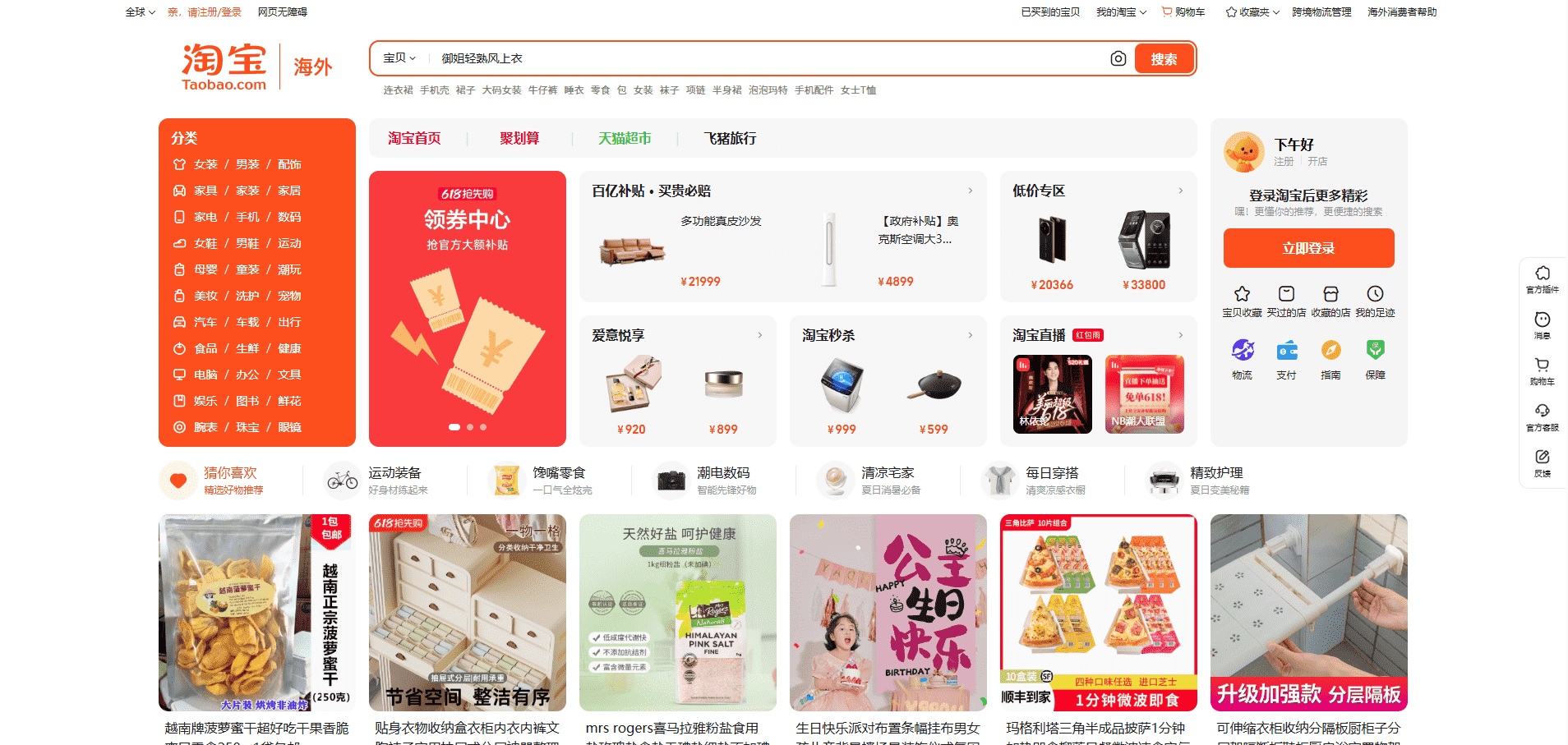
Taobao is China’s largest consumer-to-consumer (C2C) marketplace, run by Alibaba Group. It’s often compared to eBay, but it’s much more integrated into Chinese internet life—think mobile-first, real-time livestream selling, and native payment solutions like Alipay.
Foreign sellers can’t sell on Taobao directly unless they have a Chinese business license, but for global dropshippers, it’s also a popular sourcing site—you can buy from Taobao and then dropship those items to other markets.
| Avantages | Les inconvénients |
|---|---|
| Access to China’s massive consumer base | Requires Chinese language and business registration |
| Mobile-first shopping culture | Extremely competitive and price-driven |
| Strong logistics network via Cainiao |
Aubaine
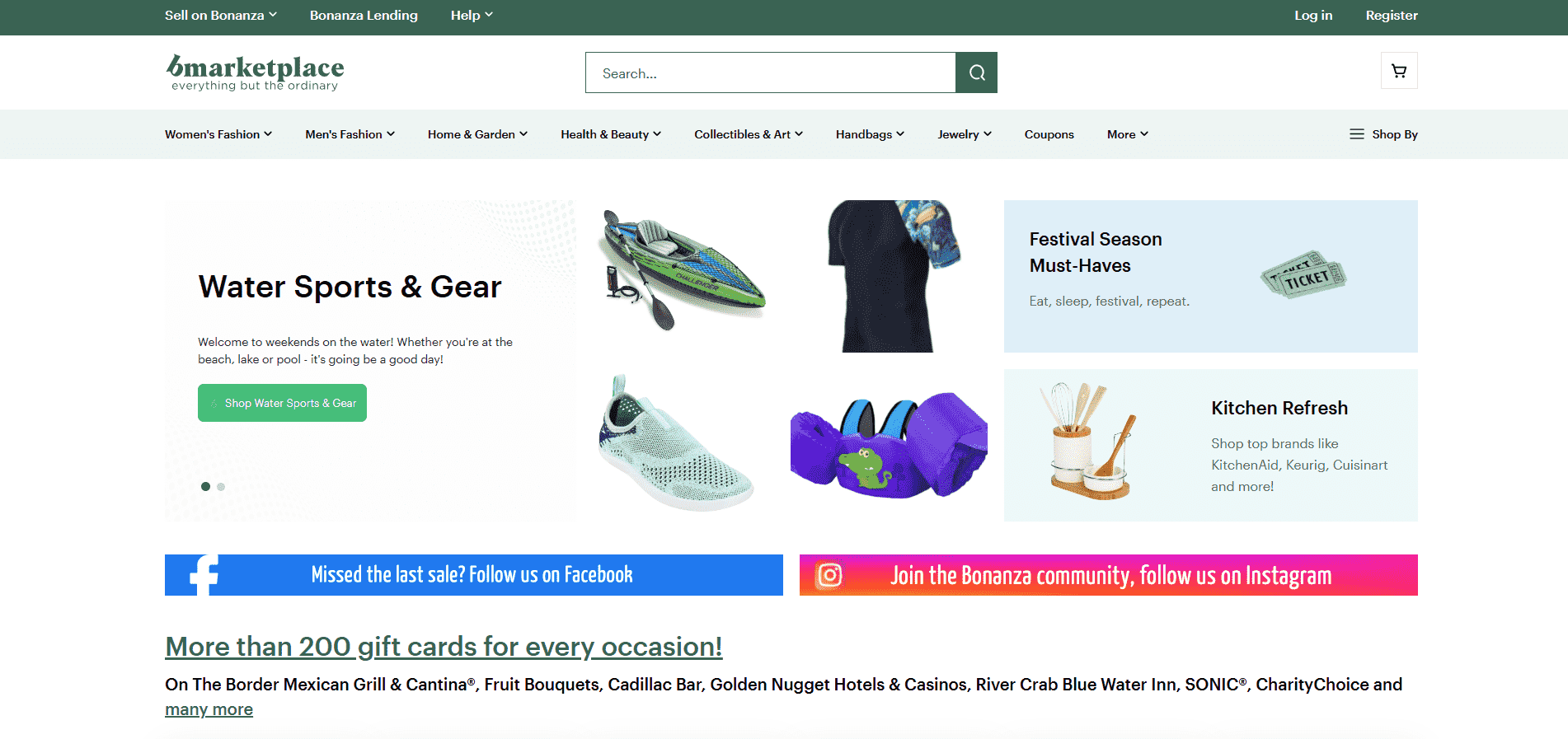
Bonanza is a U.S.-based, seller-friendly marketplace that markets itself as a more relaxed, fair alternative to eBay. It supports a wide range of categories—from fashion and collectibles to home goods and electronics.
What makes Bonanza stand out is how easy it is to get started. You can import your listings from eBay, Amazon, or Shopify in just a few clicks. Unlike eBay, Bonanza lets you customize your storefront and build a brand presence.
| Avantages | Les inconvénients |
|---|---|
| Super easy listing import from other platforms | Most traffic comes from Google, not internal search |
| Lower fees than eBay or Amazon | Lower traffic than bigger platforms |
| Store customization and branding tools | Extra marketing features cost more |
Bonanza Selling Fees
- One-time setup fee: $14.99 (non-refundable)
- Flat transaction fee: $0.25 per sale
- Final value fee: Minimum of 11%
Ruby Lane
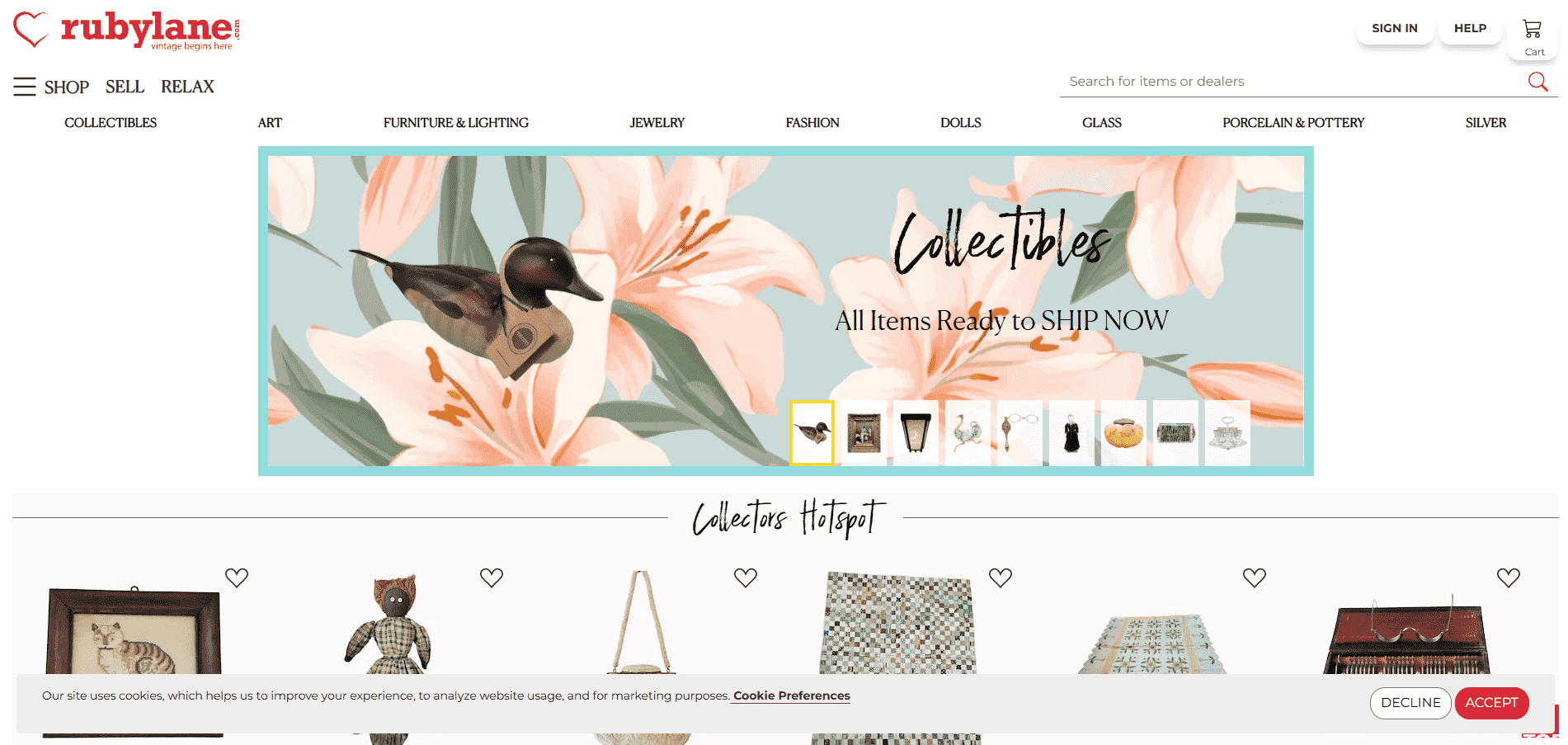
Ruby Lane is a niche marketplace for vintage, antique, and collectible items—think art, jewelry, furniture, and fashion. It’s one of the most trusted platforms for buyers looking for authentic, high-end goods. What makes Ruby Lane different is its curated environment: not just anyone can list products. Sellers must meet strict quality and category standards.
If you specialize in antiques or vintage pieces, this platform puts you in front of a serious, qualified audience that’s willing to pay a premium. However, unlike marketplaces like Etsy or eBay, Ruby Lane does not handle payments or shipping—you work with buyers directly.
| Avantages | Les inconvénients |
|---|---|
| Highly targeted audience for antiques and collectibles | Some upfront fees |
| Strong buyer loyalty and repeat purchases | Strict category and quality standards |
| Faible concurrence | Not suitable for general or trending items |
Ruby Lane Selling Fees
- Maintenance Fee: $45/month
- Tiered Service Fee: 9.9% on items under $2,500; 5% on items between $2,500 and $7,500; 2.5% on items over $7,500
Souhait

Souhait is a shopping app mostly used on phones. It’s popular for its super low prices and strange or fun product ideas. Shoppers are mainly from North America and Europe, and many are looking for cheap gadgets, accessories, or clothes.
Wish is great if you sell small, light, and trendy items that are cheap to ship. The more your products sell and get good reviews, the more they’ll show up in the app. Many sellers focus on selling lots of items instead of making big profits on each one.
But shipping can be slow, and some buyers complain about product quality.
| Avantages | Les inconvénients |
|---|---|
| Giant user base and strong mobile engagement | Negative reputation around long shipping times |
| Automated promotions and analytics | Very low average order value |
| Integrated logistics and Wish Express |
Wish Selling Fees
- Commission: 13.5%–20% depending on category
- Transaction Fee: $0.30 per item
eBid

eBid is a global marketplace where you can list items for auction or set a fixed price. It tries to compete with eBay, but with much lower fees. Many sellers like eBid because it’s cheaper and doesn’t push extra services like eBay does.
You can even pay once to get a seller account for life. This helps save money over time. However, eBid doesn’t get as much traffic as eBay, so it may take longer to sell your items.
eBid also lets you share your listings to places like Google Shopping, and it has tools to help you import items from eBay.
| Avantages | Les inconvénients |
|---|---|
| low selling fees | Much lower traffic than eBay or Amazon |
| Lifetime seller accounts available for a one-time fee | Website design looks outdated |
| Over 25,000 product categories | Doesn’t have many ways to promote your products |
eBid Selling Fees
- Subscription fee: $9.99 for 30 days; $139.98 for a lifetime account (Free plan available but with fewer features)
- Final Value Fee: 0% to 5%, depending on your plan
Rakuten
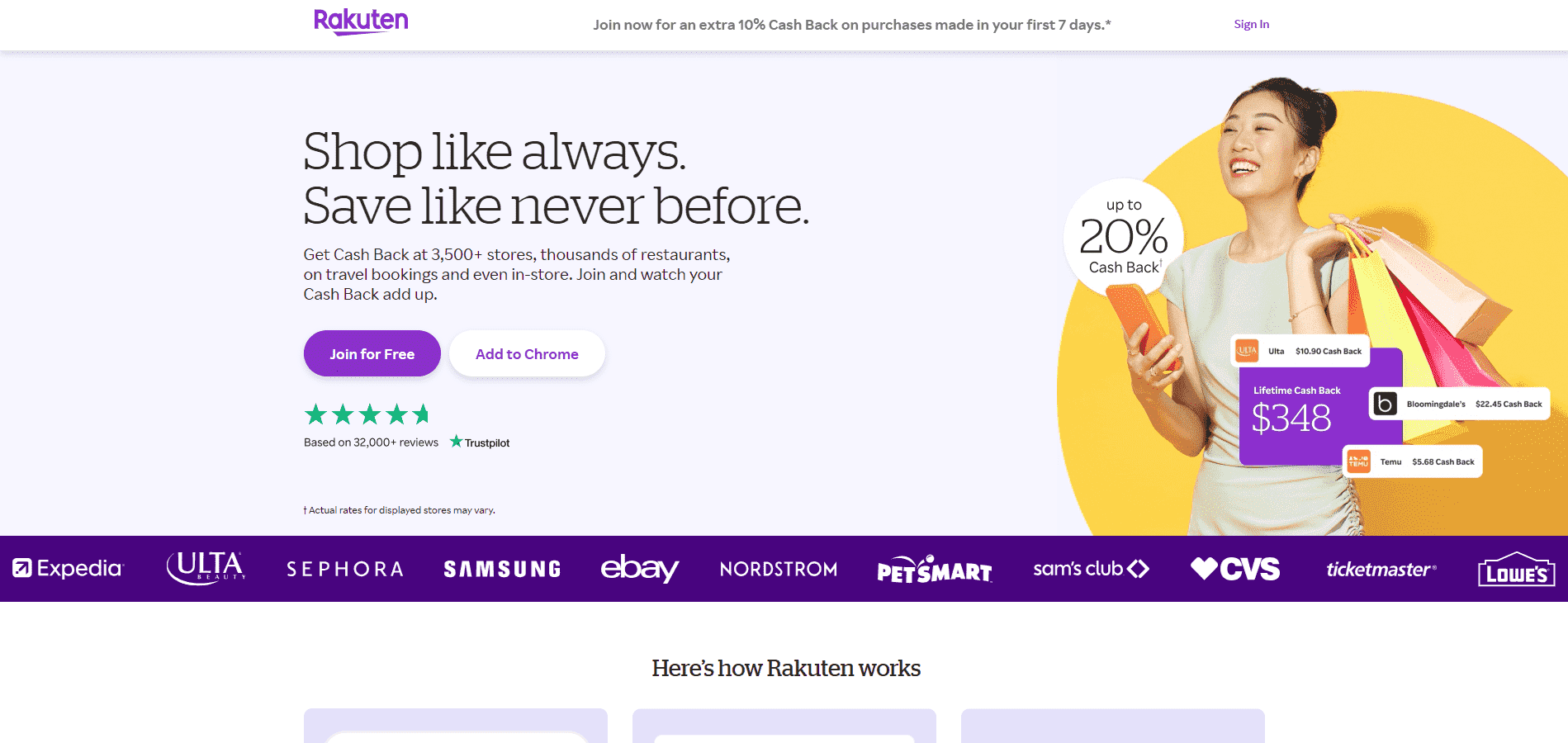
Rakuten is one of the biggest online stores in Japan. It’s often called the “Amazon of Japan.” While it mainly serves Japanese customers, it also sells to other countries through Rakuten Global.
Rakuten is not for personal sellers. You need to be a registered business to open a store. Setting up a store takes time, and you may need help with Japanese language and customer service. But once you’re in, you’ll reach buyers who trust the platform and spend more money.
You can fully customize your store and build a strong brand, but the fees and setup cost are high.
| Avantages | Les inconvénients |
|---|---|
| Highly trusted by Japanese consumers | Language barrier if you don’t speak Japanese |
| High purchasing power and repeat customer rates | High operating costs |
| Full store customization | Requires localized customer service |
Rakuten Selling fee
- Registration Fee: ¥60,000
- Monthly Fixed Fee: ¥65,000
- Commission: 2% to 4% depending on the category
Craigslist

Craigslist is one of the oldest sites like eBay. It’s great for selling things locally, like furniture, electronics, and other used items. But it’s not a typical shopping site—you won’t find buyer protection, online payments, or shipping support here.
Still, people love Craigslist because it’s simple and free. You just post what you’re selling and wait for someone nearby to message you.
| Avantages | Les inconvénients |
|---|---|
| Free to list in most categories | No protection from scams or chargebacks |
| Massive local reach in every U.S. city | Manual process—no automation or listing tool |
| No commissions, no memberships | Requires face-to-face interaction |
Craigslist Selling Fees
Most listings are free, but some categories (like job postings or vehicles) may have fees depending on your area.
Nextdoor
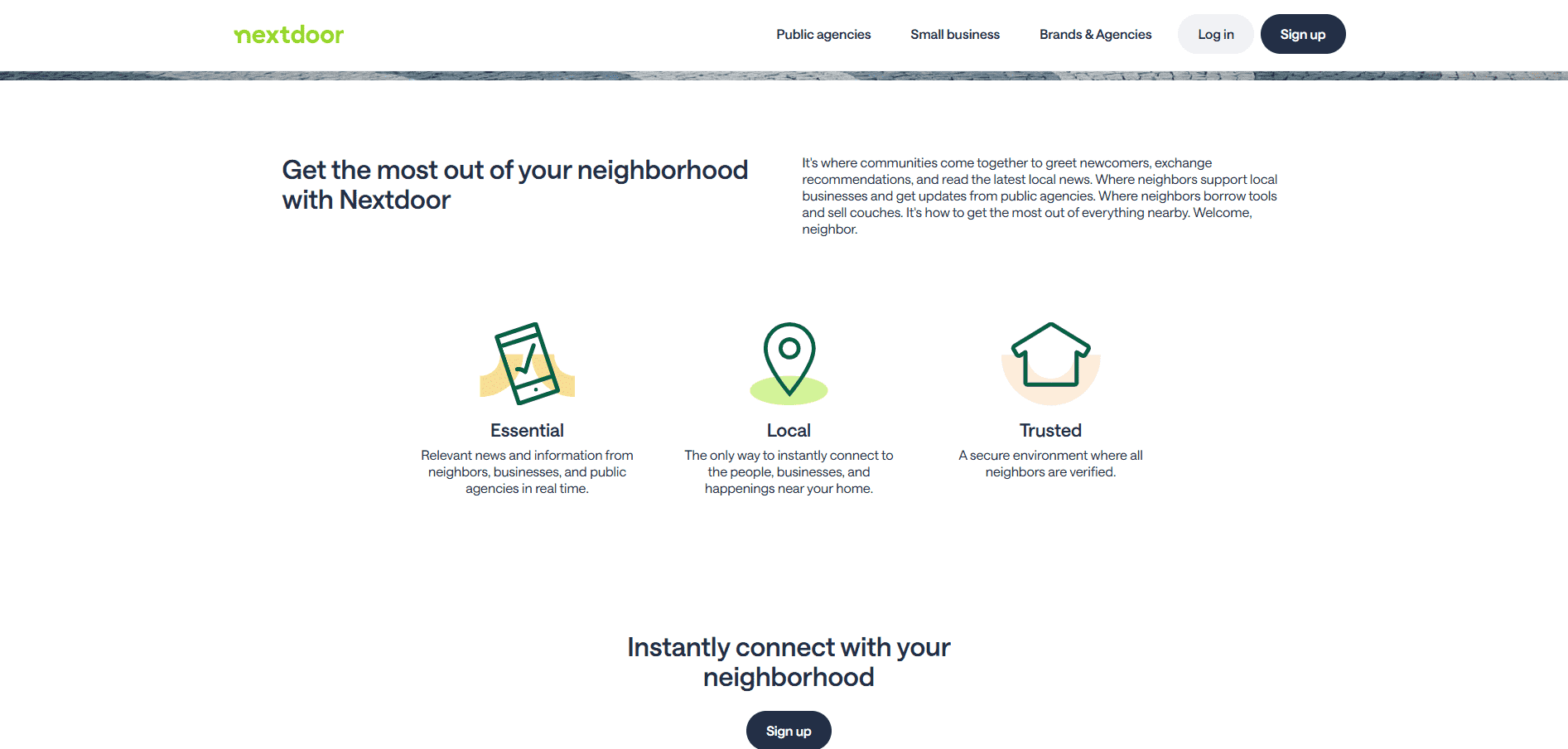
If you’re exploring sites like eBay but want a more community-based approach, Nextdoor is worth considering. Nextdoor is a neighborhood-based social app. Most people use it to post about lost pets or local events, but it also has a section for buying and selling stuff. The cool part? You’re selling to your neighbors—people who live just blocks away.
There’s no shipping, no fees, and no need for a fancy online store. It’s all about trust and community.
| Avantages | Les inconvénients |
|---|---|
| Easy listing process via app or web | Limited to local transactions |
| Good for building trust within your community | Product visibility depends heavily on your location |
| Only people near you see your listings | No ratings or dispute resolution system |
Nextdoor Selling Fees
Free to list and sell.
OfferUp

OfferUp has become one of the top sites like eBay for local and shipped sales, especially for casual sellers. It’s kind of like Craigslist, but with a smoother design and in-app messaging. You can list items like clothes, electronics, toys, or furniture with just a photo and price.
If you want to sell nationwide, OfferUp lets you ship items using prepaid labels. For local deals, you just meet up with the buyer.
| Avantages | Les inconvénients |
|---|---|
| Local and nationwide reach | Limited seller protections |
| Shipping available for eligible items | Some scams still slip through |
| Messaging and negotiation all in-app | Competition can be fierce in high-traffic areas |
OfferUp Selling Fees
- Local Sales: Free
- Shipped Sales: 12.9% fee, with a minimum of $1.99
Mercari
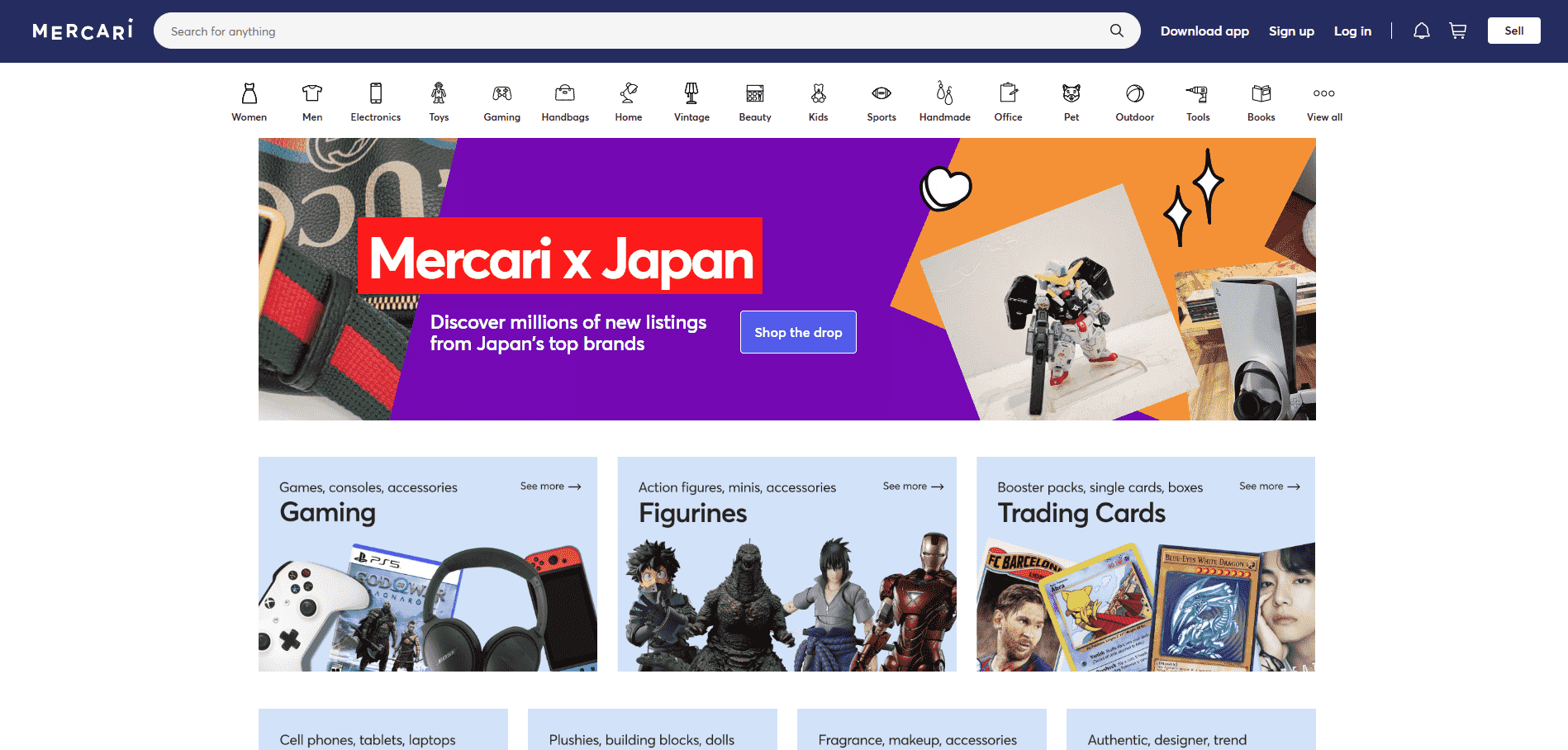
Mercari is an easy-to-use selling app that’s gotten really popular in the U.S. It’s perfect for people cleaning out their closets or selling secondhand items. There are no auctions—just list your item, set a price, and wait for someone to buy it. For those tired of eBay’s cluttered listings, Mercari offers a cleaner interface and stands out among similar sites like eBay.
One big plus: Mercari offers prepaid shipping labels, often cheaper than buying postage yourself. And buyers don’t get charged until they confirm delivery, so it’s safe for both sides.
| Avantages | Les inconvénients |
|---|---|
| Prepaid, discounted shipping labels | Lower visibility for niche or high-ticket products |
| No auctions—fixed prices only | Limited branding or scaling options for sellers |
| Buyer and seller protections in place | Some restrictions on certain item types |
Mercari Selling Fees
A flat 10% fee on each sale
Target Plus

Target Plus is Target’s exclusive third-party marketplace. Unlike open marketplaces like eBay or Mercari, you can’t just sign up and start selling here. Target personally invites sellers—usually established brands or top-rated online stores with a proven track record.
Once you’re in, though, the benefits are big. Your products show up just like any other Target listing, making them feel familiar and trustworthy to customers. You also gain access to Target’s massive customer base and top-tier logistics, including options like in-store pickup. Target Plus isn’t open to everyone, but among premium sites like eBay, it offers serious credibility and built-in traffic.
| Avantages | Les inconvénients |
|---|---|
| Access to millions of Target shoppers | High standards for product quality and delivery times |
| Native, trusted product listings | Less flexibility |
| Excellent logistics and fulfillment options | Invite-only—no direct application process |
NewEgg
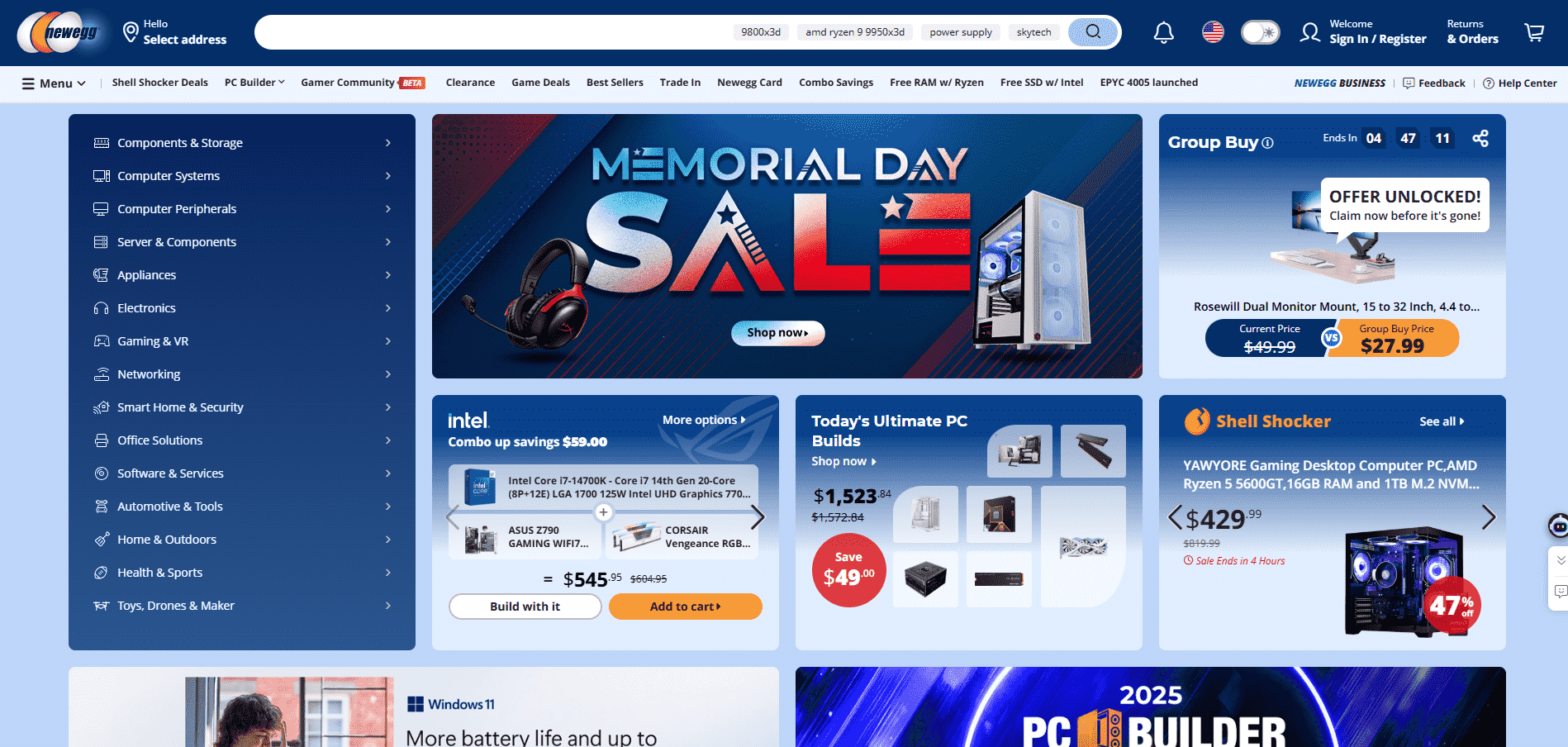
Newegg remains a top choice among sites like eBay for electronics sellers looking for a more specialized audience. It started as a store for computer parts and evolved into a full-blown marketplace. Now, third-party sellers can list their products—if they stick to the platform’s tech-focused niche.
If you’re selling computer gear, gaming accessories, or home electronics, Newegg is a great fit. It’s especially useful for sellers who want a more serious environment than eBay or Facebook Marketplace. You can also use “Shipped by Newegg,” a fulfillment service that handles your orders similar to Amazon FBA.
| Avantages | Les inconvénients |
|---|---|
| Strong reputation in tech and electronics | Narrow niche—only works for electronics and tech gear |
| Fulfillment by Newegg option | Concurrence féroce |
| Business-focused buyer base | Application process required |
NewEgg Selling Fees
- $0.49 per item sold (or $29.95/month professional plan)
- Commission: 5%–10% based on product category
Swappa
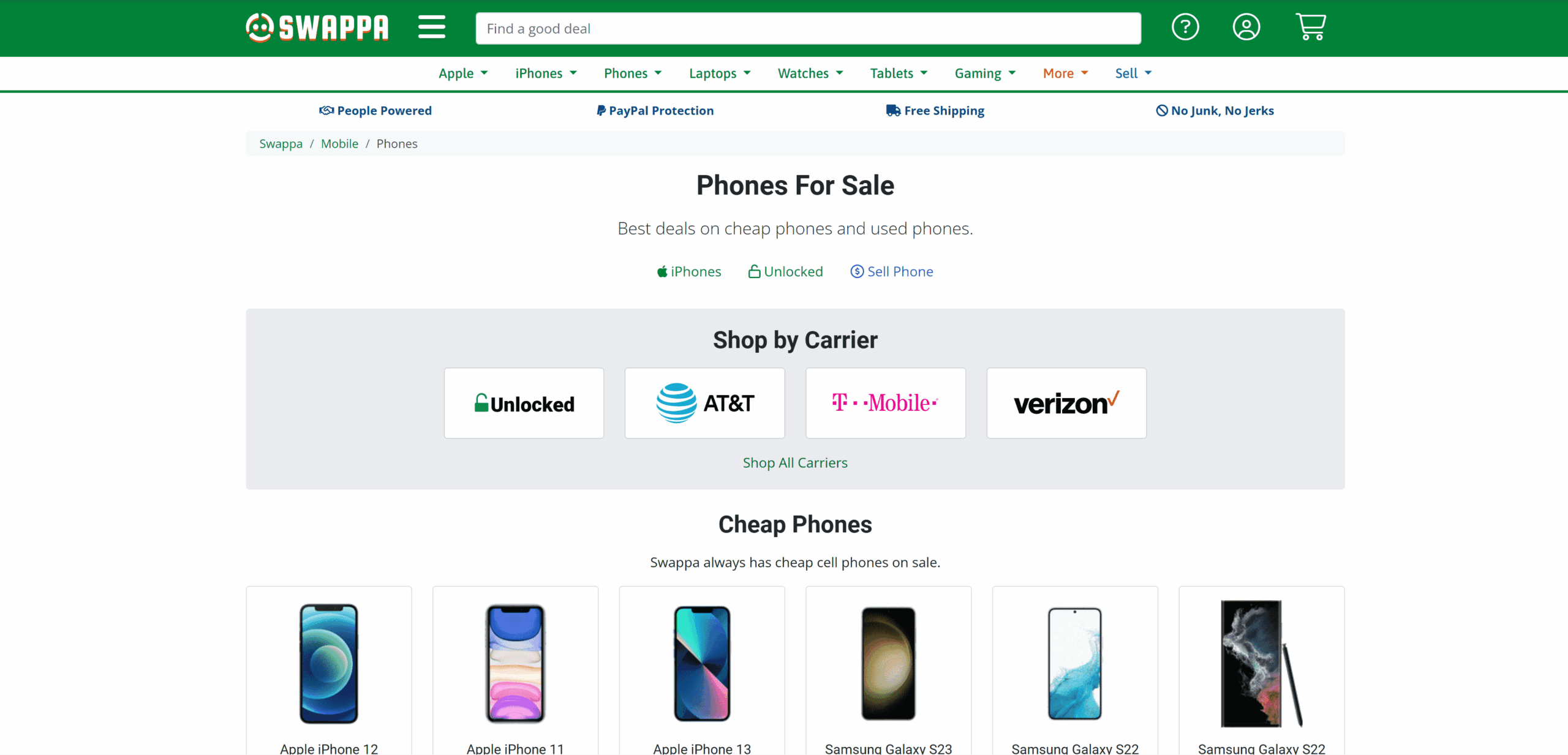
Swappa is a specialty marketplace for used tech. It’s built for people who want to buy and sell gadgets—like phones, tablets, laptops, and gaming consoles—without the mess and scams often found on eBay.
Unlike most platforms, every Swappa listing is reviewed by a human before it goes live. Sellers can’t list broken or “for parts” items, and payments go through PayPal for fast, secure transactions.
| Avantages | Les inconvénients |
|---|---|
| Instant PayPal payments | Limited exposure for non-tech sellers |
| Ideal for electronics, phones, and tech bundles | Only tech items allowed |
Swappa Selling Fees
- 3% flat seller fee
- Payment processing: 3.49% + $0.49 (PayPal)
VarageSale
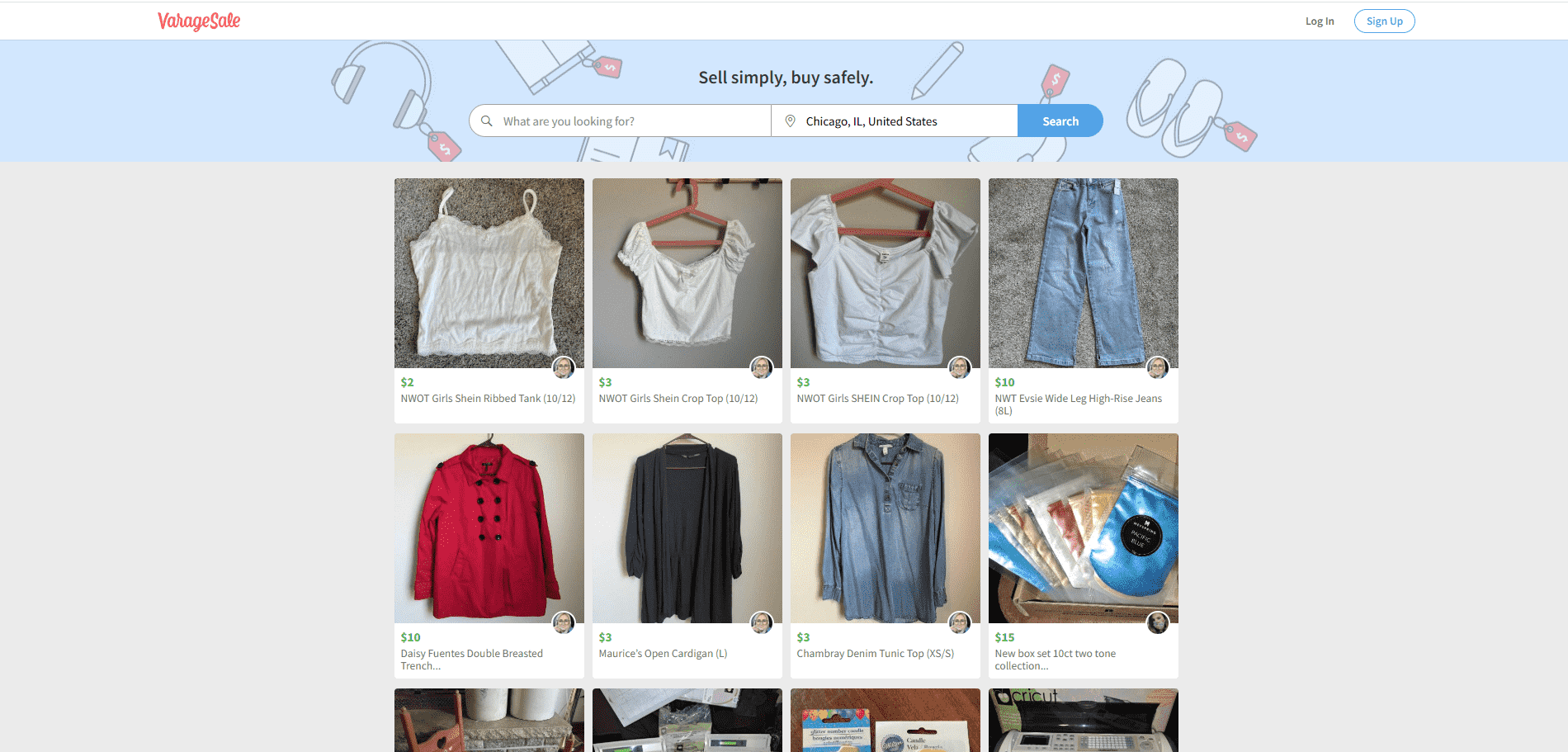
VarageSale might not be as well-known, but it earns a spot among sites like eBay for its safe, local-first selling experience. It is like a digital neighborhood garage sale. It’s all about trust and community. Every user is verified through Facebook or other ID methods, and each listing is tied to a local area. That makes it feel safer and more personal than platforms like eBay or OfferUp.
Selling here means chatting with buyers nearby, meeting in person, and exchanging items directly—usually on the same day. It’s ideal for casual decluttering or selling everyday stuff locally.
| Avantages | Les inconvénients |
|---|---|
| Strong focus on community safety and real identity | Only available in select cities |
| Simple listing interface and app | Slower item turnover in small communities |
| Local-only transactions | Not scalable for business use |
VarageSale Selling Fees
Libre
Sup Dropshipping: Your Partner for Selling on Sites Like eBay
Now that you’ve seen the lineup of eBay alternatives, you might be wondering—how do you keep up with order fulfillment, packaging, and finding trustworthy suppliers while managing multiple platforms?
That’s where we come in.
Sup Dropshipping is built for sellers who want to scale without burning out. We take care of:
- Product sourcing – Find trending items across categories.
- Branded packaging – Give your store a professional look.
- Automated fulfillment – Orders shipped automatically, even across multiple platforms.
- One-on-one support – Real people, not bots, to help you grow.
Want to give it a try? Visit Sup Dropshipping et Nous contacter to get started for free.
Dernières pensées
eBay might be one of the biggest names in online selling, but it’s definitely not your only choice. If you’re selling tech gear, sites like eBay such as Newegg or Swappa offer a more focused, scam-free experience. Got a local audience? VarageSale brings it close to home. Want to sell through a trusted brand? Target Plus gives your products built-in credibility. Or if you’re a wholesaler looking to go global, LightInTheBox could be your ticket.
The best sites like eBay depends on what you sell, who you’re selling to, and how much control you want. Whether you’re decluttering your garage or building a real business, there’s a platform out there that fits just right.
A propos de l'auteur

Peut
May est blogueuse chez Sup Dropshipping avec plus de 5 ans d'expérience dans le commerce électronique. La passion de May pour le commerce électronique la pousse à se tenir au courant des dernières tendances et à partager son expertise avec vous via son blog. Pendant son temps libre, elle aime lire un roman ou discuter avec des amis.

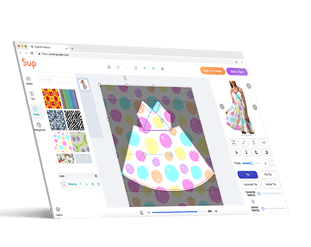
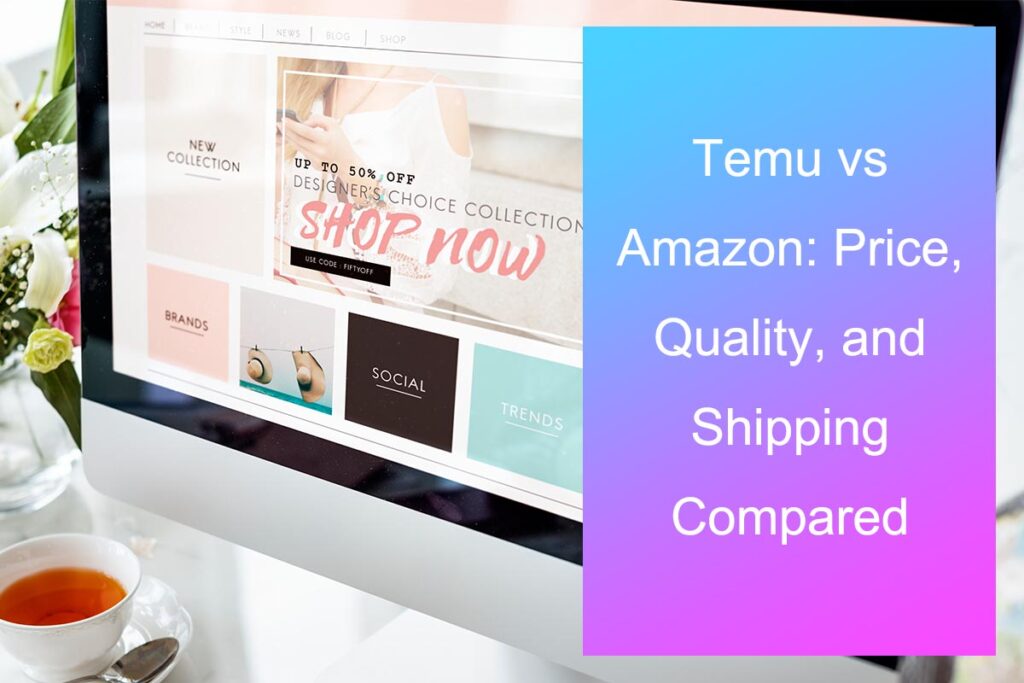

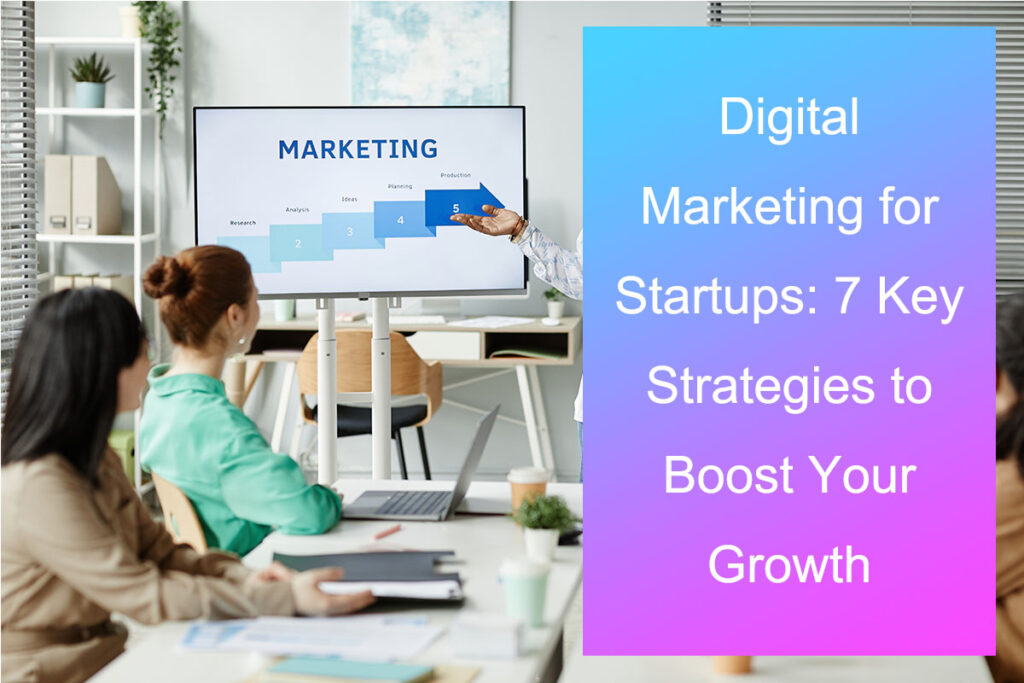
Laisser un commentaire